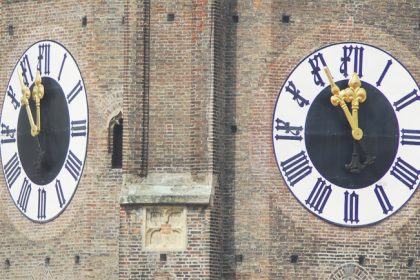The Enlarged Board of Appeal has ruled on important issues of double patenting claiming priority: The prohibition of double patenting also applies to parent and divisional applications as well as applications claiming the same priority – in same destination states.
EPO and EPC: Prohibition of double patenting
The Enlarged Board of Appeal of the European Patent Office issued an important decision (G 4/19 (double patenting)) on double patenting on 22 June 2021. According to this decision, a European patent application can be rejected due to the prohibition of double patenting. However, this prohibition only applies if the already granted patent and the additionally applied for patent have common designated states.
This decision is based on appeal case T 0318/14 of 7 February 2019 (OJ EPO 2020, A104). In that initial case, the EPO’s patent division had refused to grant a second patent filed with the same claim as the first, already granted patent (No. 2 251 021, patentee is Nestlé (Switzerland)), from which the contested application claimed priority for the second patent. The examining division took the view that the prohibition of double patenting also extended to European applications claiming internal priority from another European application.
The appellant Nestlé, in turn, argued that the prohibition did not apply in the case of internal priority. Decisions G 1/05 and G 1/06 concerned divisional applications and were only applicable in this context. Moreover, Article 125 EPC was in principle not a suitable legal basis for the prohibition of double patenting, as it was a question of substantive law.
The Board of Appeal of the European Patent Office (EPO) therefore referred this case to the Enlarged Board of Appeal with an interesting question on double patenting.
Questions referred to the Enlarged Board of Appeal
Specifically, the first question referred was:
Can a European patent application be refused under Article 97(2) EPC if it claims the same subject-matter as a European patent which was granted to the same applicant and does not form part of the state of the art pursuant to Article 54(2) and (3) EPC?
In other words, it was asked whether the prohibition of double patenting also applies to European patent applications claiming internal priority from another European application?
Prohibition of double patenting under Article 125 EPC?
To answer, the Enlarged Board of Appeal interpreted Article 125 EPC in the light of Articles 31 and 32 of the Vienna Convention on the Law of Treaties. The Enlarged Board of Appeal confirmed that the term “procedural provisions” in Article 125 EPC may extend to provisions requiring substantive examination of the claimed subject-matter. It held that the prohibition of double patenting was a principle of procedural law within the meaning of Article 125 EPC and was generally recognised in the contracting states. The versions of Article 125 EPC in the original languages German and French were explicitly cited as evidence for this interpretation: in German it is called “Vorschriften über das Verfahren”, in French “Disposition[s] de procédure”.
Prohibition of double patenting – even with the same priority
Contrary to the appellant’s view, the Enlarged Board of Appeal then decided that the prohibition of double patenting was not limited to applications directed to the same subject matter and filed on the same date. Rather, the prohibition of double patenting also extended to parent applications and divisional applications as well as applications claiming the same priority, the Enlarged Board of Appeal specified.
Prohibition – but only in same destination states
The Enlarged Board of Appeal thus extended the prohibition of double patenting in a previously unavailable clarity. However, the Enlarged Board of Appeal added that this prohibition of double patenting only applies if the already granted patent and the additionally applied for patent have common countries of destination. This is an important addition to the decision of the Enlarged Board of Appeal, especially in view of the regulations for international patent applications (PCT). Indeed, the Article 8 of the PCT provides for international applications to claim the priority of an earlier European patent application.
The Enlarged Board of Appeal is the highest judicial instance under the European Patent Convention (EPC). Its main task is to ensure the uniform application of the EPC.
This goes far beyond the political European Union; the European Patent Convention is an agreement between 38 contracting states. Among them are all 27 member states of the EU as well as 11 other states. These include countries very close to the EU, such as the UK, Norway and Switzerland, and also include the countries of Iceland, San Marino, Northern Macedonia, Albania, Serbia and Turkey, as well as the Principality of Monaco and Cyprus (Cy).
Interested in a European patent application?
Our patent and trade mark law firm has experienced patent attorneys and attorneys-at-law with a lot of expertise in the entire field of intellectual property.
We offer all legal services related to a patent application, from the professional patent search to the drafting and filing of the patent application to the granting of the patent, both nationally and internationally.
Please contact us if you are intested.

Sources:
Press Communiqué of 22 June 2021 on decision G 4/19
Image:








Leave a Reply